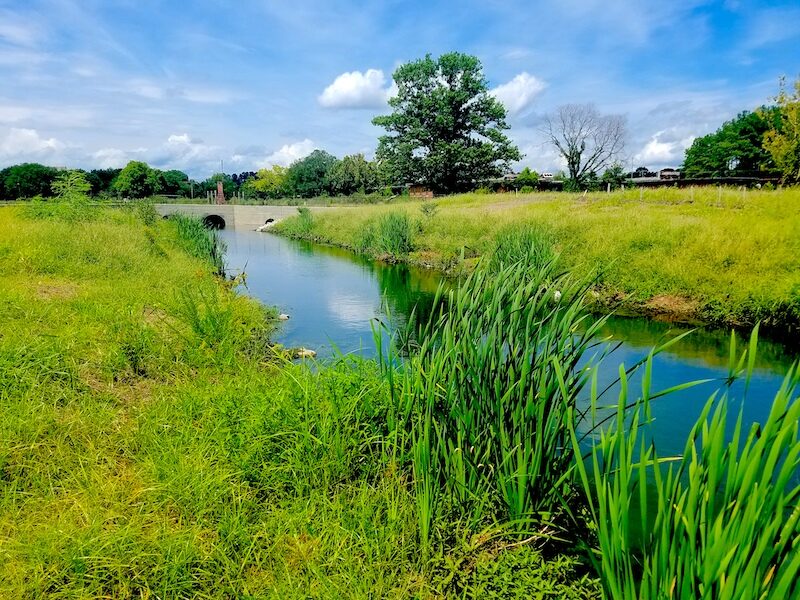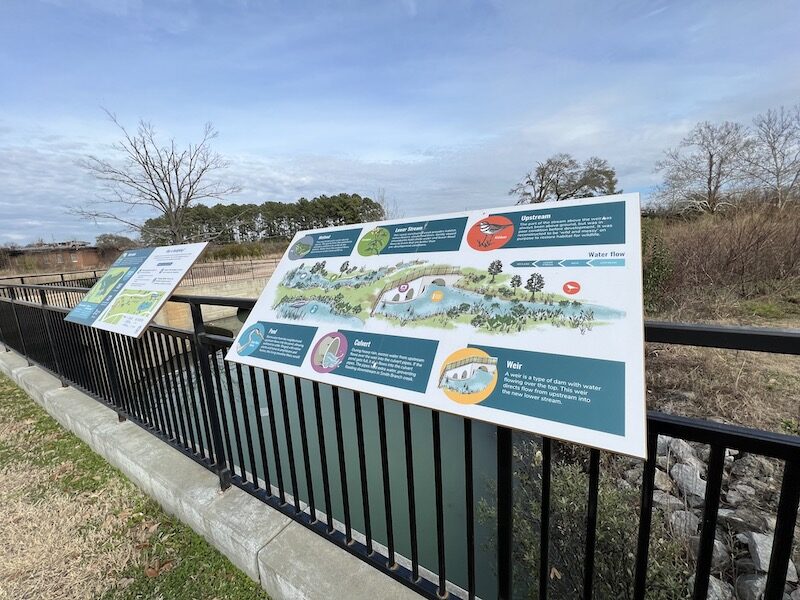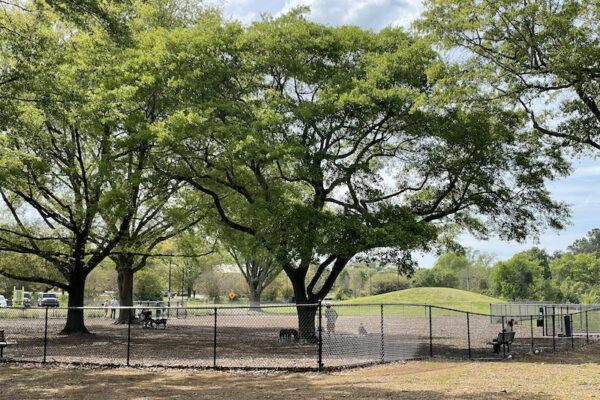One goal of this park was to recreate a natural habitat by bringing Smith Branch Creek to the surface on the property while also creating a two-acre pond.
The restoration of Smith Branch Creek, including the planting of thousands of live tree stakes along the waterway's banks, is making a positive impact on water quality, wildlife and biodiversity.
The creek, which flowed underground in twin 84-inch culvert pipes on the property, was brought to the surface and meanders through Page Ellington Park, BullStreet's 20-acre public park.
New interpretive signage along the creek provides important information about conservation and the park’s biodiversity, as well as an overview and benefits of the creek daylighting process, including the advanced water engineering tactics deployed by the BullStreet District to mitigate stormwater impact and rehabilitate the land within Page Ellington Park for public enjoyment.




